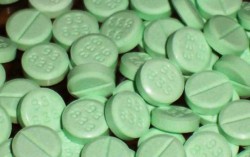Telltale Signs of Clonazepam Abuse
Clonazepam is marketed in the United States under the brand name Klonopin. As a benzodiazepine, clonazepam is most commonly used to treat anxiety and panic disorders, seizures, or to control acute symptoms of alcohol withdrawal syndrome. Abuse of clonazepam can result in a high risk of dependence and adverse effects, including overdose and death.
Clonazepam Side Effects
Clonazepam is a central nervous system depressant intended to produce the effects of relaxation, sedation, and calmness, but, the side effects may be less desirable including:
- Decreased concentration
- Drowsiness
- Dizziness
- Memory loss
- Loss of inhibition
- Decreased motor functioning
- Emotional “anesthesia” or inability to feel pain or pleasure
- Depression
- Suicidal ideations
- Dependence and withdrawals
- Paradoxical stimulant effects
- Decreased blood pressure, heart rate, and respiration
Paradoxical Stimulant Effects
Some individuals experience paradoxical stimulant effects when using clonazepam and some people may develop them after long term use or abuse. Paradoxical effects may include increased anxiety, panic, insomnia, seizure or convulsions, nightmares, irritability, hallucinations at the onset of sleep, hyperactivity, and aggressive, violent, or bizarre behaviors.
Clonazepam Abuse
Abuse of clonazepam increases the possibility of long term and possibly permanent adverse physical and psychological health consequences because of the extreme influence it has on neurotransmissions within the brain and central nervous system.
Clonazepam abusers often chew or crush and snort clonazepam to get a “rush” or more potent chemical response and taking clonazepam in higher than recommended doses, more frequently, in combination with other drugs or alcohol, or abusing it in other ways is nothing, but, dangerous.
Telltale Signs of Clonazepam Abuse
Overdose, suicides, and attempted suicides are some of the most concerning signs of clonazepam abuse. According to the Drug Abuse Warning Network, the number of emergency department visits involving non-medical use of clonazepam increased 117% between the years of 2004 and 2011. Other signs include:

Finishing prescriptions early or using the medication without a prescription are sure signs of misuse of clonazepam.
- Using clonazepam without a prescription.
- Taking more than usual doses to get desired effect.
- Needing to use clonazepam to carryout daily activities.
- Continuing to use although prescription has run out or is no longer necessary for originally indicated purposes.
- Difficulty discontinuing use because of withdrawals.
- Overly anxious for next dose.
- Denying or hiding the amounts being used from others.
- Intense mood swings or inability to control emotions.
- Unusual behaviors or personality changes.
- Engaging in risky behaviors or dangerous activities.
- Worsening anxiety, depression, or psychosis.
- Erosion of the nasal lining or nose structure from snorting clonazepam
- Over sedation including difficulty concentrating, drowsiness, confusion
- Weak academic or professional performance
- Loss of interest in hobbies or emotional “anesthesia”
Turning Point New Haven CT
This triple-tiered rehab located in New Haven, Connecticut provides a road to recovery and a much-needed hand-up to young men dealing not only with addiction, but with a lack of real-life skills that prevent them from living full, substance-free lives in the real world. While many guys their age are studying their way through New Haven’s hallowed, ivy-league institutions, their counterparts at Turning Point are working as if their lives depend on it.
Details ›The Sundance Center
At this peaceful treatment center in upscale Scottsdale, residents learn how to enjoy all that life has to offer – without the assistance of drugs and alcohol.
Details ›


